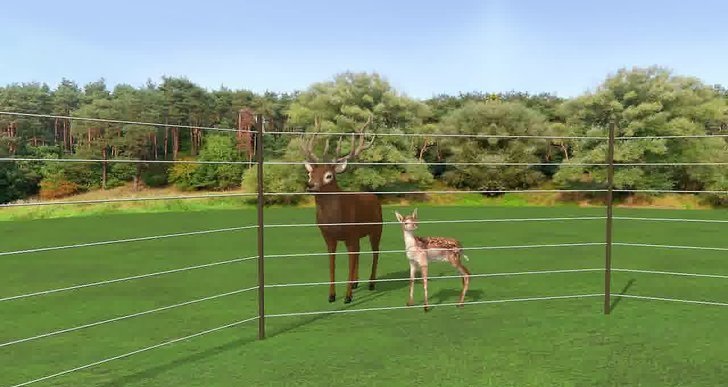The electric fence is a device that’s revolutionised agriculture.With it, it’s possible to keep livestock from wandering too close and vandalising their enclosure, and it’s also useful in dissuading would-be intruders from wandering into the enclosure and disturbing your cattle!
Whether you’ve been raising livestock for years, or you’re just looking to get started, there are a number of common mistakes which are worth identifying and avoiding.Let’s take a look at some of them, and see how we might do exactly that.
Get the posts right
The most important component of any wire fence, whether it’s electric or not, are the posts which hold it upright.Posts in any wire fence come in two different categories.There are straining posts, which are required to keep the wires taut, and there are the intermediate posts which just keep it help upright.It’s the former which are the most important.They’re placed wherever the wire fence changes direction, and must be driven deep into the ground if they’re to avoid falling over during a storm.As a rule of thumb, a fence post should be driven as far into the ground as it extends up from it.
Be sure when you’re considering posts that you don’t opt for a metal one – even if the strength they offer is far superior.Metal posts, obviously, conduct electricity.Even if you install insulating material between the wire and the post, the chances are overwhelming that at some point something will come loose or pop off.This will create the potential for a short that’ll render your fence ineffective.
Get the wires right
When you first install your fence, you’ll want the wiring to be tense.Since you won’t need to worry about animals leaning on the fence, you might crank the tension up on the topmost wire higher than you otherwise might.But over time, the wires which make up a wire fence will begin to loosen, and so occasionally re-tightening them might be necessary.For this reason, don’t be overzealous when it comes to securing the wires to the wood.When you need to remove and re-tension later down the line, you won’t thank yourself for securing the wire using twenty staples per post.
Get the soil right
A post is only as strong as the soil that it’s installed into.If you’re dealing with an especially marshy or boggy field, then your posts won’t be as sturdy as they would be if you installed it into gravel and rocks.It’s therefore worth securing the base of your fence post with a drier sort of soil.Gravel can be purchased cheaply and will go a long way toward ensuring your fence is as stable as possible.
Get the energizer right
An electric fence will rely on a steady, uninterrupted flow of current.Use a low-impedance offering with a low-amp fuse for maximum efficacy.You don’t want to the energiser to be too large, as it’ll short through nearby greenery and thereby lower the voltage.Naturally, your choice will also depend on the length of your fence.Choosing an energiser is a considerable task in and of itself, so be sure to consider it carefully.
Get the grounding right
An electric fence works by forming a complete circuit when the animal touches it.In order to achieve a consistent shock across the entire fence, it’s important to have an even spread of grounding rods at regular intervals.Don’t put them too close together, otherwise they’ll effectively act like one big ground rod.
A ground rod is best thought of as a large receiver for the energiser.The more moisture in the soil, the better the conduction between the former and the latter.While copper rods make for the best conductors, they tend to be expensive, and vulnerable to corrosion.It’s worth remembering that you’re going to be placing this device in the wet, dirty ground, and that over time these things will matter.Opt for a galvanised rod instead.
In conclusion
Installing a fence isn’t a difficult task.There are however, several things that might go wrong.By securing yourself the best materials, you’ll give yourself the best possible chance of success.If you’re based in the area, you’ll be able to find everything you need from a builder’s merchant in North Wales. Richard Williams are among the foremost purveyors of North Wales fencing supplies, and so if you’re an aspirant farmer based in Wales, you should consider them a must-visit.







